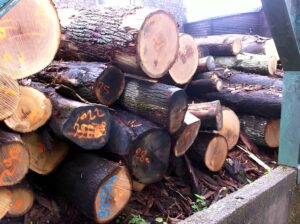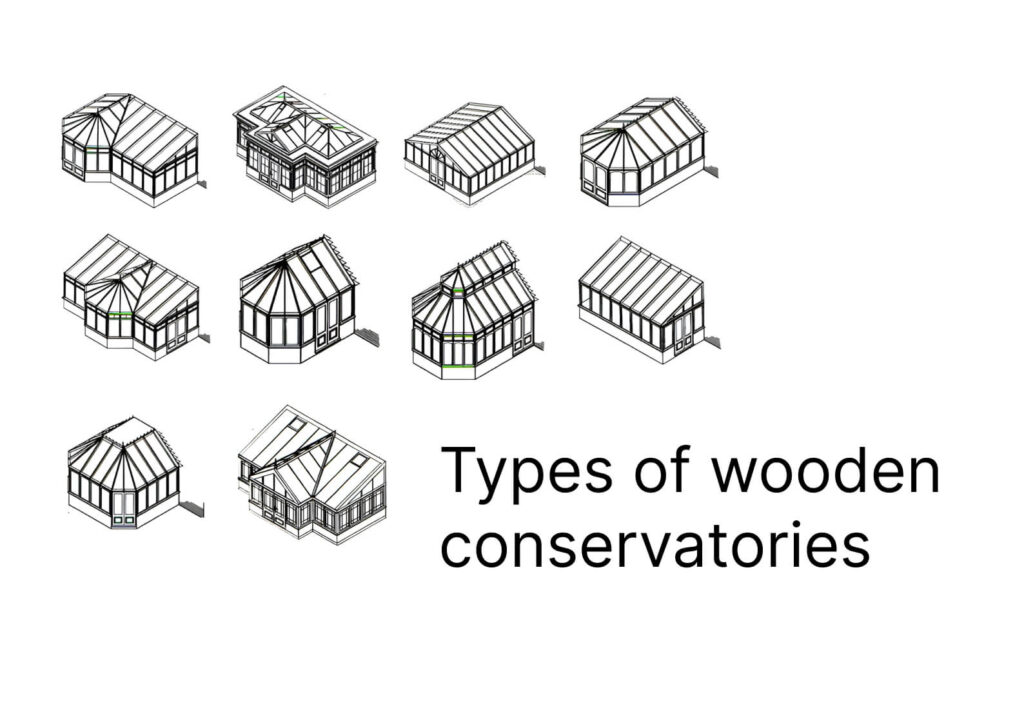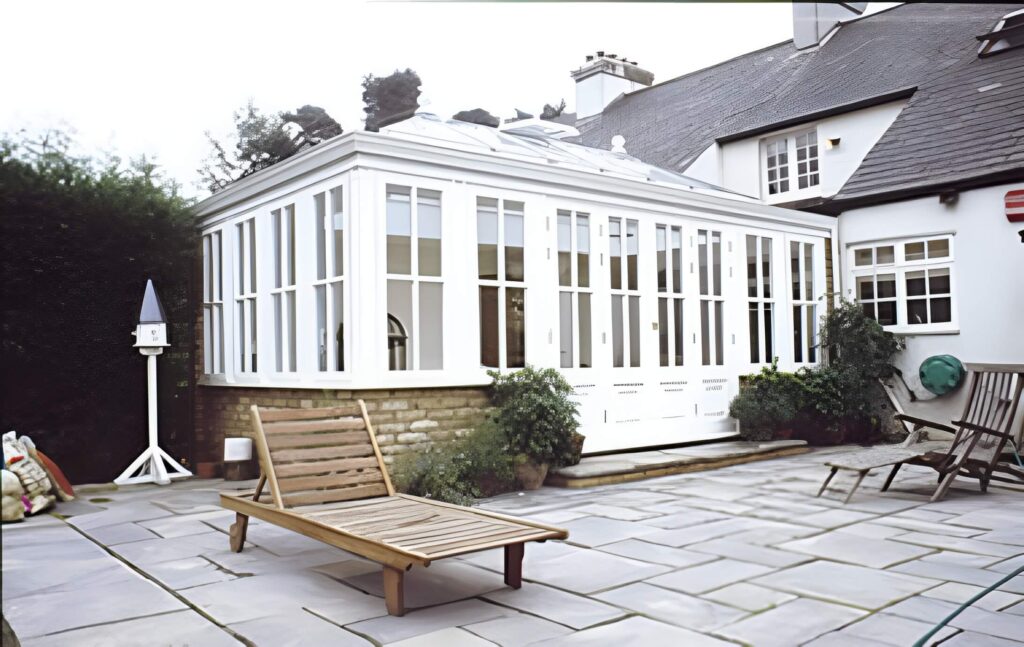Hardwood conservatories are known for their durability, natural beauty, and sustainability.
Treated hardwoods such as oak, teak, and sapele resist rot, moisture, and general weathering, contributing to long-lasting structures.
They offer excellent thermal insulation, which helps lower energy expenses. Hardwood’s versatility supports bespoke designs, suitable for modern and traditional properties.
If your conservatory needs attention, our hardwood conservatory repair services can restore its charm and functionality.
Common types of conservatory hardwood timber
When choosing a type of wood for your conservatory, it’s worth knowing the unique benefits of each option.
These hardwoods vary in cost, appearance, and durability, allowing homeowners to select materials that meet specific design and budget requirements.
Sapele: Durability and aesthetic appeal
Sapele is a strong and durable hardwood with a fine, even grain that allows for precise machining and finishing. Its resistance to decay and stability make it suitable for conservatories, particularly for doors, frames, and other structural components.
The reddish-brown tone of sapele enhances its visual appeal, while its dense structure supports long-term use. It is frequently used in conservatory construction due to its predictability during crafting and its ability to produce a smooth, reliable finish after treatment.
Oak: Strength and longevity
Oak is a robust hardwood widely used for conservatory construction. It provides structural strength capable of supporting large glazing panels. The grain of oak, combined with its honey-coloured tone, offers a traditional aesthetic often desired in residential extensions.

Treated oak resists weathering and rot, ensuring durability over decades. Its compatibility with various finishes, including natural stains and protective coatings, makes it adaptable to numerous design styles. This hardwood is valued for its balance of functionality and natural appearance.
Cedar: Lightweight and naturally resistant
Cedar is a favoured option for wooden conservatories because of its lightweight properties and inherent resistance to decay and pests. Its fine grain and warm reddish-brown tones make it visually appealing, while its low density allows for easier handling during construction.
Cedar’s natural oils act as a protective barrier, enhancing its durability in various weather conditions without the need for extensive treatments. It is particularly suited for conservatories with intricate designs or those requiring lighter materials for structural elements.
Mahogany: Timeless elegance
Mahogany is a dense hardwood known for its rich reddish colour and fine grain. Its stable structure allows it to maintain its shape over time, reducing the chances of warping or splitting. These characteristics make it suitable for wooden conservatories requiring precision in frame alignment and joint integrity.
While Philippine mahogany is more commonly available, it requires periodic maintenance to retain its visual appeal. This hardwood is selected for conservatory construction primarily for its aesthetic value and moderate resistance to environmental factors.
Teak: Resistance to weather and insects
Teak is a hardwood valued for its natural resistance to decay and insect infestation. Its natural oils provide moisture protection, reducing the risk of swelling or cracking in humid conditions. Teak’s golden-brown tones contribute to its appearance, which is retained with proper maintenance.
With its weather resistance and durability, it is highly suitable for conservatories in a variety of climates. Teak’s extended lifespan offsets its higher cost, making it a sensible option for long-term applications.
Ash: Versatile and lightweight
Ash is a hardwood that offers a balance of durability and versatility. Its lightweight nature simplifies handling, making it ideal for detailed and intricate conservatory designs. It has a pale, uniform grain, which provides a clean and understated appearance suitable for modern applications.
Ash is resistant to wear and offers long-lasting functionality in both structural and decorative components of conservatories. It is often chosen as a cost-effective material without significant compromises on strength or aesthetics.
Construction costs of hardwood conservatories
Material costs
Hardwoods such as oak, teak, and iroko cost between £2,500 and £3,500 per square meter. Affordable options, such as idigbo, reduce overall expenses while maintaining structural integrity. Material costs depend on the type of hardwood chosen and the project’s level of complexity.
Professional fees and labour
Skilled labour is essential for the precise installation of timber frames and glazing. Fees often include planning permissions and structural assessments. Intricate designs can lead to increased labour costs due to the demand for precise craftsmanship.
Final finishes and treatments
Protective finishes, such as microporous paints or natural stains, enhance durability and resistance to weathering. Additional features like double glazing units or solar control glass increase thermal efficiency and comfort. These finishing touches improve both the appearance and longevity of the conservatory.





